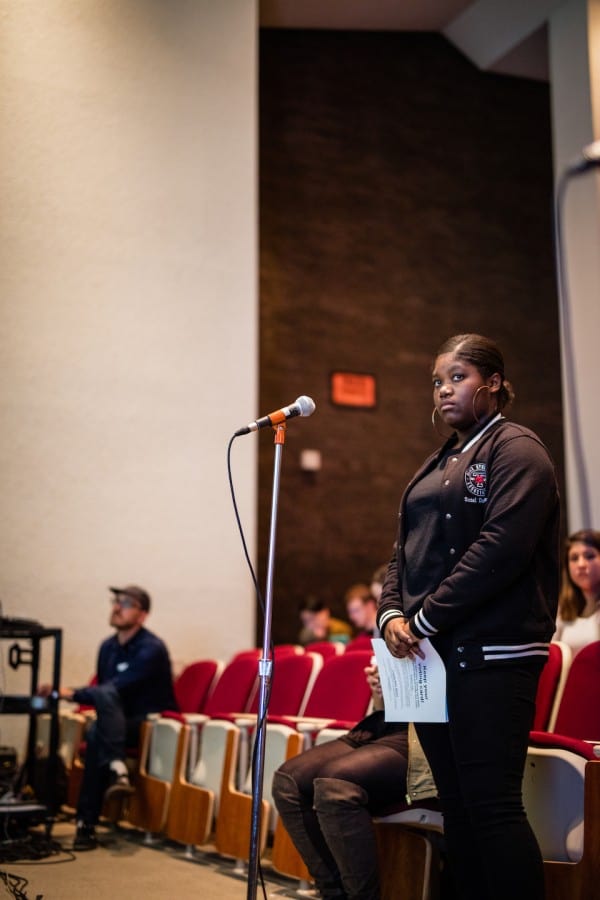UTM students were notably absent from the University of Toronto Students’ Union’s (UTSU) Special General Meeting (SGM), or AGM Part 2 on November 18. According to Ben Coleman, UTSU president, the union received a request from UTM to participate in the meeting via Skype. That request was received on the Monday that week, two days before the meeting.
During the SGM, the president of the Afghan Students’ Association, Madina Siddiqui, drew attention to the missing UTM contingent. Coleman responded that the University of Toronto Mississauga Students’ Union (UTMSU) only began to book a room for from which to Skype at 3:00 pm on the day of the SGM.
“The problem with Skype was that we were not able to find any rooms,” said Naveed Ahmed, UTMSU vice-president external. “We tried our best to talk to our office managers, talk to the conference services at UTM, asking if any rooms were available and we do have a [thread] saying that there are no rooms available from 4:30 [pm] to 10:30 [pm] at UTM. There’s no rooms that can have 80 to 100 people for a Skype session.”
Siddiqui, however, argued that there were several things wrong with the SGM in addition to the lack of UTM’s participation. Prior to the meeting she created a Change.org petition to postpone the meeting until February. The online petition reached 150 supporters. The petition mentioned various reasons for which Siddiqui was in favour of moving the meeting, including the alleged lack of inclusivity for UTM students. With the UTMSU’s AGM just a few days before the UTSU’s SGM, the petition claimed it would be hard to ensure UTM members could make it to the SGM.
“There are some really big questions around democracy and representation for students in our union given the way in which this meeting was held, and who was included or excluded,” Siddiqui said. “How is it that 500 students at UTSG and UTM — more than the number of students in attendance on Wednesday – requested that the UTSU executive postpone the general meeting and this request was denied? How is it that a meeting was called with the express purpose of pushing a select board proposal forward that the membership had rejected a month ago?”
In addition to raising those questions, Siddiqui also called on the UTSU to empower UTM students, who she said were already disenfranchised in many ways. “It is the responsibility of the UTSU executive, as those that called this meeting, to ensure all members have access and can participate in the meeting.”
Khrystyna Zhuk, UTSU Arts & Science at-large director, and mover of the successful board proposal, said that she was not sure if UTM’s absence made a significant difference in the results.
“There has always been a lot of support from St. George students, and I think a lot more St. George students came out tonight,” Zhuk said in a post-meeting interview. “You can tell that by the votes. I think the new proxy system that we have in place has helped a lot with actually getting student involvement out. I think all of these factors contributed to the passing of the board proposal.”
Natalie Petra, an executive with the Arts & Science Students’ Union, who also contributed to the proposal, said that UTM was consulted in the creation process, to work in all students’ best interests.
“In terms of working together, UTM wasn’t here,” Petra said. “We really, really tried our best to get their input and their feedback on this. In sum, I would say we have to do a little more investigating as to why they weren’t here, if that was a choice or if that was a barrier they faced. In terms of community and comprehensiveness, we did our best to consult every single group that we possibly could, from equity to colleges, to just regular students on the ground, to UTM — we really tried our best.”
The UTMSU asked that full-time UTM students who missed to meeting to contact their president with complaints on their Facebook page.


